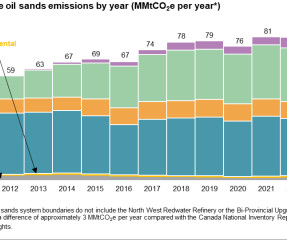IHS Markit: oil sands greenhouse gas intensity declined 20% over past decade
Green Car Congress
AUGUST 6, 2020
New research by the IHS Markit Canadian Oil Sands Dialogue shows that the combined greenhouse gas (GHG) intensity of Canadian oil sands projects has declined 20% from 2009 levels. The latest data show that the greenhouse gas intensity of Canadian oil sands going down further, continuing a decade-long trend.

































Let's personalize your content